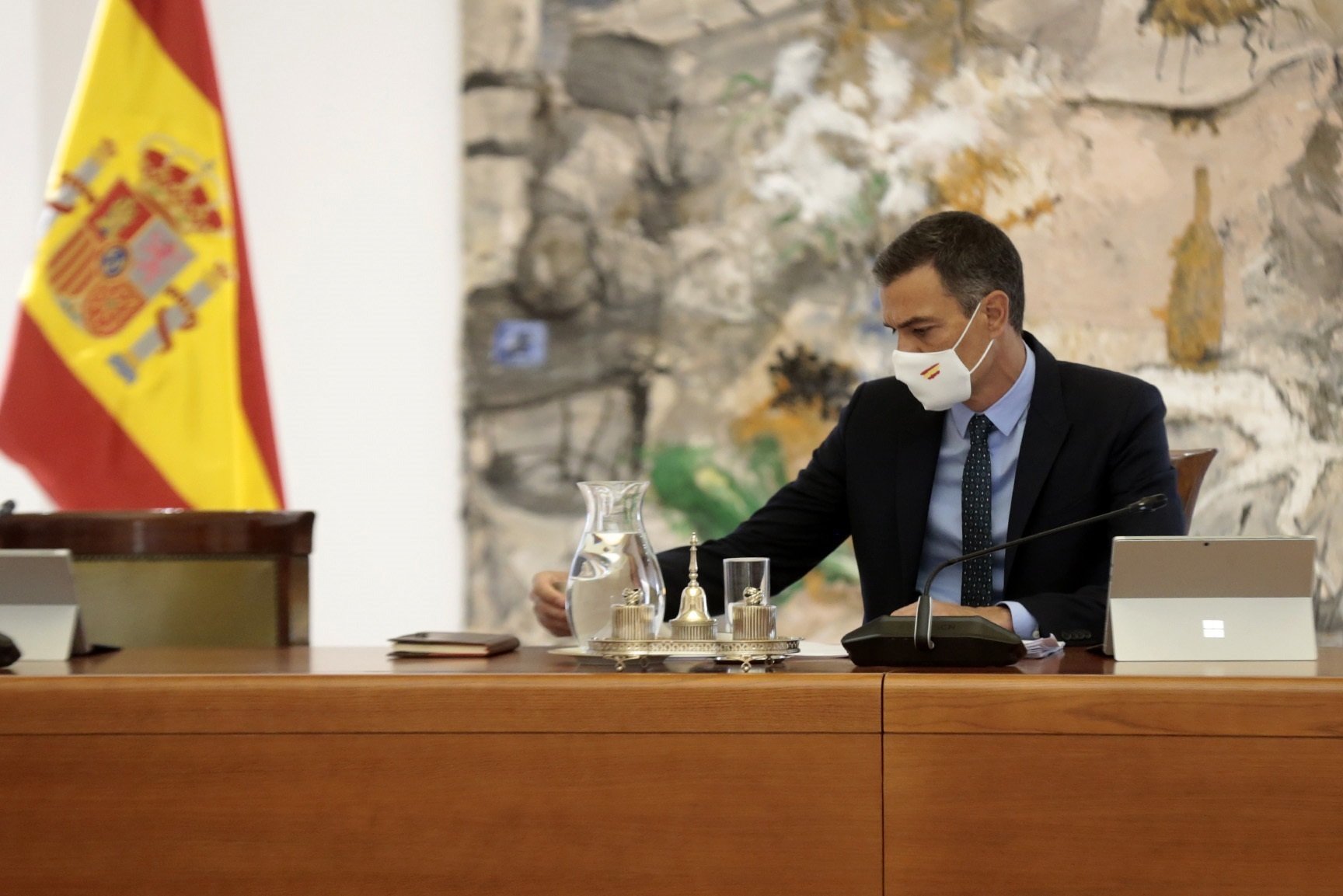The Spanish prime minister, Pedro Sánchez, has offered the country's Autonomous Communities the possibility of declaring a state of alarm in their respective territories as a measure to combat the second wave of coronavirus. "All the Autonomous Communities have at their disposal the legal tool of the state of alarm and the ability to request its declaration in all or part of their territory," he said. The state of alarm was the constitutional vehicle used by the Sánchez government to take centralised emergency powers throughout Spain from the beginning of the Covid-19 crisis in mid-March until June - a measure which sidelined the regional authorities and led to widespread criticism of the PSOE-Podemos government's approach.
In a press appearance after this Tuesday's cabinet meeting, Sánchez said that there are legal ways to declare a state of alarm partially, as the situation of the pandemic "is not territorially homogeneous" and he pledged that, if this were applied, the main authority would continue to be the corresponding Autonomous Community president but that with a "will of co-governance", the Spanish government would support the regional authority in Congress to defend the application of the state of alarm and any required extensions.
Under the Spanish constitution, a state of alarm requires parliamentary approval if extended for a period longer than two weeks, and the PM also offered the support of the "parliamentary groups which back his parliamentary majority" in Spain's lower house in the declaration of individual states of alarm. Sánchez also asserted that a state of alarm would not have to imply a lockdown like that imposed over the whole of the Spanish state from March onwards.
Now, the virus does "understand territories"
Today's statement marks a 180 degree change of direction from the rhetoric used by the Spanish PM at the start of the coronavirus crisis in March, when he repeatedly insisted that "the virus did not understand territories" as a justification for taking centralised control. Now, Pedro Sánchez has admitted that the situation of the pandemic is not homogeneous: "It was not so at the beginning, it was not so during the state of alarm and it is not today”, and therefore there are territories where “the virus is having a greater effect” than in others.
Sanchez also acknowledged the existence of what he called a "second curve" of Covid-19 that "is rising again in a threatening way" and warned that its development in recent weeks "is concerning." For that reason, he said, he wanted to convey a "message of alert but of serenity" due to the major growth of the coronavirus. "Alert because the evolution is worrying, especially in some territories. It must be stopped. Serenity because we are far from the situation of mid-March. We cannot allow the pandemic to take over our lives again. We will not allow it.", he stated emphatically.
Military mobilization
Sánchez also announced the mobilization of 2,000 soldiers for contact tracing tasks "at the disposal of the Autonomous Communities, whatever party they are governed by." "We might even increase this figure if needed through the urgent training we have planned. Spain has a modern and professional Armed Forces which are now taking a step forward to protect the health of all of us," he said.

